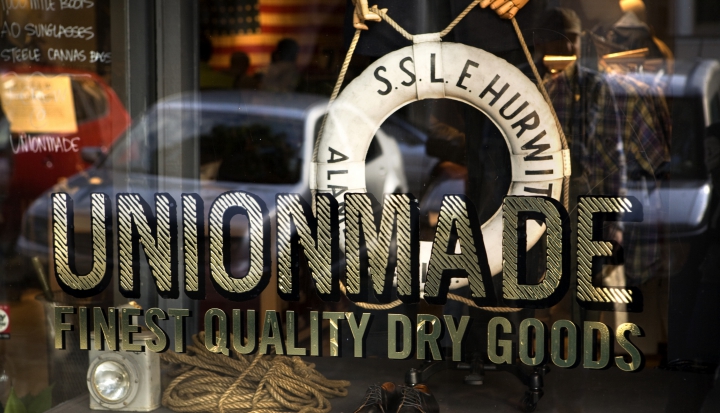The best resource on wage theft is Kim Bobo’s outstanding book Wage Theft in America: Why Millions of Working Americans Are Not Getting Paid—and What We Can Do About It (The New Press). Originally published in 2009 and updated in 2011, it includes a wealth of information about the problem as well as tons of practical tips on what both individuals and religious congregations can do about it.
Interfaith Worker Justice (IWJ) has helped start and/or has affiliated with 27 worker centers all over the country, which now form their own Worker Center Network. Click on “Affiliates” for a list of centers in the network. Bobo recommends these worker centers as partners for parishes and other religious organizations that want to work on wage theft and worker rights issues. There are many other worker centers outside of IWJ’s network. More comprehensive lists are included in Bobo’s book (Appendix D) and in a list compiled by the National Lawyers’ Guild. See also Worker Centers: Organizing Communities at the Edge of the Dream by Janice Finn (EPI/Cornell University Press).
Download the free 66-page Illinois Worker Rights Manual from Arise Chicago. Additional manuals available from the other worker centers.
Some resources for ethical shopping recommended by Bobo:
- ShopUnionMade.org: Unions ensure that workers are paid all their wages and help them gain good wages, benefits, and working conditions. This site connects with many, though certainly not all, union-made products.
- FairTradeFederation.org: A clearing house for products made in fair trade workplaces in the Unites States and other countries.
- HotelWorkersRising.org and its mobile app UNITE HERE Union Hotels Guide help identify both union hotels and hotels that are on the union’s boycott list.
Other practical steps from the IWJ website and Chapter 12 of Kim Bobo’s book:
- Become an e-advocate to stop wage theft. Click here to sign up for IWJ action alerts.
- Support businesses that pay workers fairly and legally.
- Give tips to restaurant wait staff in cash.
- Pay your workers what you owe them. Follow all labor laws regarding minimum wage, overtime, workers comp, benefits, etc.
- Pay well those who work around your home. If you hire anyone to help clean your house, care for your kids, mow your grass, or remove leaves from your gutter, pay them well, promptly, and fairly.
- If you hire contractors for home renovations, ask how much the workers are paid, and if they are paid as employees. If the contractor says, he or she hires “independent contractors” or pays the workers as “1099s,” be suspicious. If available, hire union contractors.
- Make sure your children and family members get paid their wages. Complain if an employer steals wages from them, either intentionally or unintentionally.
- Give a donation to IWJ to support the campaign against wage theft. Click here to give.
- Browse IWJ’s resource center to learn more about worker justice. Get started here.
“Stopping Wage Theft in our Congregations and Religious Institutions” (from Bobo’s book, Chapter 12 and the IWJ website):
- Conduct worker rights training sessions aimed at stopping wage theft.
- Provide worker rights materials.
- Talk with youth groups about work issues.
- Counsel and refer workers.
- Preach a new vision.
- Lift up workers and employers during services.
- Plan a prayer service around wage theft or highlight the issue during a worship service.
- Organize a book study of Wage Theft in America in your parish.
- Hold an educational forum on wage theft and challenges facing low-wage workers. Invite workers, worker center leaders, and IWJ leaders to speak. Click here for an IWJ “how-to” guide.
- Start a campaign to get tough anti-wage theft legislation passed and enforced in your community. Email IWJ to get started.
- Build relationships with your state and local Department of Labor officials, and invite a Wage and Hour investigator to talk with parishioners about problems in the community. Click here for an IWJ “how-to” guide.
- Make sure your parish is paying most workers as employees. Pay your workers what you owe them. Follow all labor laws regarding minimum wage, overtime, workers comp, benefits, etc. Do not hire your church musician as an “independent contractor.”
- If you hire contractors for repairs or new construction for your parish, ask how much the workers are paid, and if they are paid as employees. If the contractor says, he or she hires “independent contractors” or pays the workers as “1099s,” be suspicious. If available, hire union contractors.
- Create a business leaders’ discussion group to allow them to examine their leadership roles in light of scripture.
- Include a force-majeure clause in hotel contracts when organizing church meetings and conferences. Such a clause will permit the cancellation of the contract without penalty in the event of a labor dispute.
This article is a web-only feature that accompanies “What can the church do for worker justice in America?” which appeared in the June 2013 issue of U.S. Catholic (Vol. 78, No. 6, pages 18-22).
Image: Flickr photo cc by Artbandito













Add comment